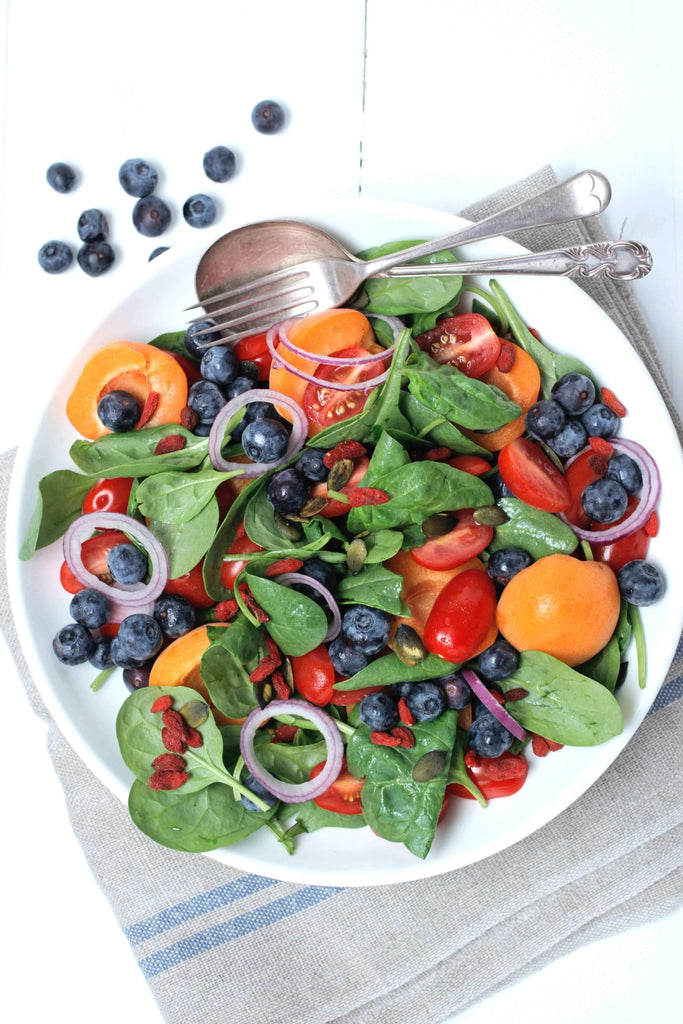Two of the most important lessons I was taught as a chef was to always taste my food and season with salt before I served it. A pinch of salt in cooking can enhance the flavour of your food and in small quantities, it’s essential for health. Sodium facilitates the movement of muscles (one of the main reasons it comes out in sweat), balancing body fluids and transmitting information to the nervous system; however like most things, if we add too much, it’s not good for your health. Like all nutrients “tis the dose that makes the poison” Paracelsus.
The average person consumes about nine times more salt than they really need. High sodium diets are linked to a number of health problems, such as high blood pressure, heart disease, stroke, gastric cancer, osteoporosis and kidney failure. Causes of hypertension include (but are not limited to) smoking, sedentary lifestyle, a diet high in sodium and an inadequate intake of other minerals such as potassium, calcium and magnesium.
What you choose to eat everyday affects your health.
1 The lower your salt intake the lower your blood pressure.
2 The higher your fruit and vegetable intake the lower your blood pressure.
The national health and medical research council suggests a dietary target on sodium for chronic disease prevention is 1600 mg/day which is equivalent to about 4 grams of salt (3/4 teaspoon). Studies from the New England Journal of Medicine report a 37% reduction of stroke for those who reduce their salt intake and consume more than 5 serves of fruits and vegetables per day. Fruits and vegetables are rich in the minerals magnesium and potassium that can blunt the effects of sodium, and help to reduce blood pressure.
The experience of flavour is highly subjective and something that may taste salty to me will taste great to someone else. Many chefs develop a high tolerance for salt and much of the time tend to add more then some of us really want. Over 70% of the salt in our diet comes from processed foods and the rest is added when we cook or found naturally in foods.
Adding salt to food is generally a habit with most of us. We add it to foods even before we’ve tasted it, but it’s important to use salt with care and purpose, not just because it says so in a recipe.
I normally cook without adding too much salt in my food and the flavour comes from fresh vegetables, fruits, spices, vinegars or herbs as well as the cooking process I use. A dressing made from walnut oil and tart raspberries for instance is all you need to add and enhance the flavour of a simple green salad - then topped with oven roasted walnuts just before serving. Reducing a home made stock or puree will intensify the flavour, caramelising and browning any protein or vegetable will add another layer of flavour to your dish.
Diets such as the MEDITERRANEAN and the DASH DIET (dietary approaches to stop hypertension) have been have shown to reduce the risk of hypertension. These anti-inflammatory style diets are characterised by being low in saturated fat and cholesterol with a high intake of fresh fruits, vegetables, fish, beans, legumes, nuts, red wine anti-inflammatory oils such as olive oil, walnut and a little red wine in moderation.
This dietary pattern is also accompanied by lots of physical activity and incidental exercise such as walking to work instead of catching the bus or taking the stairs instead of the elevator. The Mediterranean lifestyle also tends not to include any inter-meal snacking, and there’s an emphasis on reduced portion sizes and not over-eating at mealtimes. Remember food is the most powerful preventative medicine we have to treat chronic disease, aim to cook not only for taste, but also for good health.
My top tips:
Reduce processed foods ( Over 70% of our salt intake comes from the processed foods we eat. Processed foods are generally high in salt, sugar, fat, preservatives and flavour enhancers such as MSG — all of which have been linked to disease, obesity, headaches, bloating and your body just basically feeling sick and lousy. Manufacturers add these to foods intentionally to make them taste better, so you’ll eat more of their product ).
Increase fresh fruit and vegetables. Keep cleaned fruits + veggies in your fridge ready to eat - add vegetables to casseroles, stews and soups, drink vegetable juice instead of fizzy soft drinks, have fruit for assert, use vegetable based spreads such as pumpkin or avocado in place of butter, enjoy fresh fruit or green smoothies for breakfast and snacks.
Eat fresh and cook your own meals and eat less pre-prepared or processed food. Cook using fresh herbs, spices and citrus to enhance flavour.
Make your own stocks for soups by using fresh vegetables and herbs to add flavour. if you're using a store bought stock, use only have and replace the other half with water.
Don’t add salt when cooking; season only if necessary at the end once you’ve completed the cooking process.
Add more fresh fruit and vegetables to your meals, which adds flavour, antioxidants and essential minerals such as magnesium and potassium .
Look for low sodium options (less than 120mg per 100g) and go easy on high sodium foods such as store bought sauces and snack foods.
Good food sources of magnesium + potassium are: unsalted almonds, spinach + leafy greens, cashews, seeds, brazil nuts, citrus, zucchini, hazelnut, dried apricot, mushroom, pumpkin, cocoa + cacao, sweet potato, kiwi fruit, flaxseed, tahini, oats, legumes, organic soy, banana, berries, yoghurt, avocado.

 Need help finding the right product for you?
Need help finding the right product for you?


